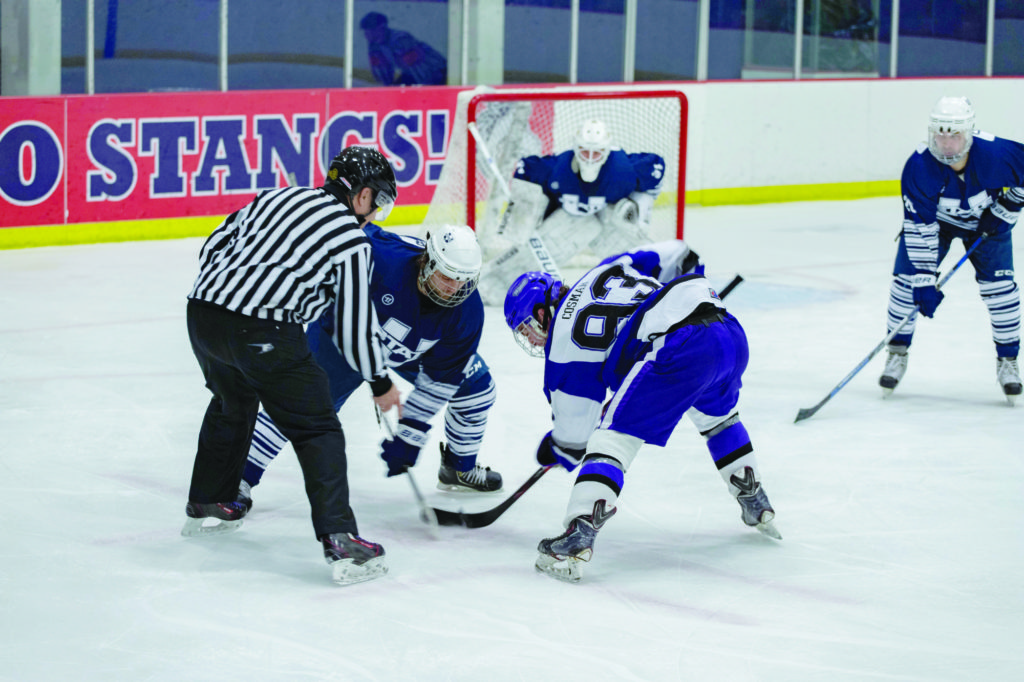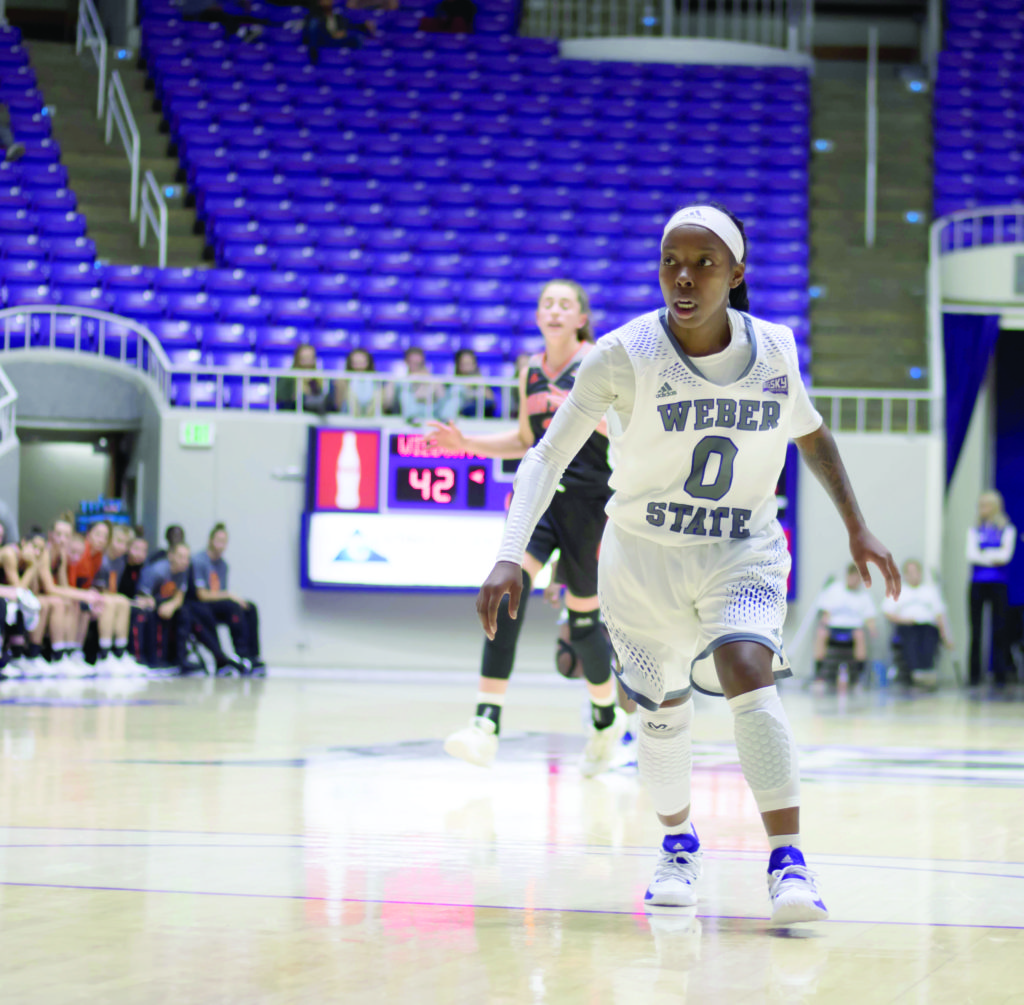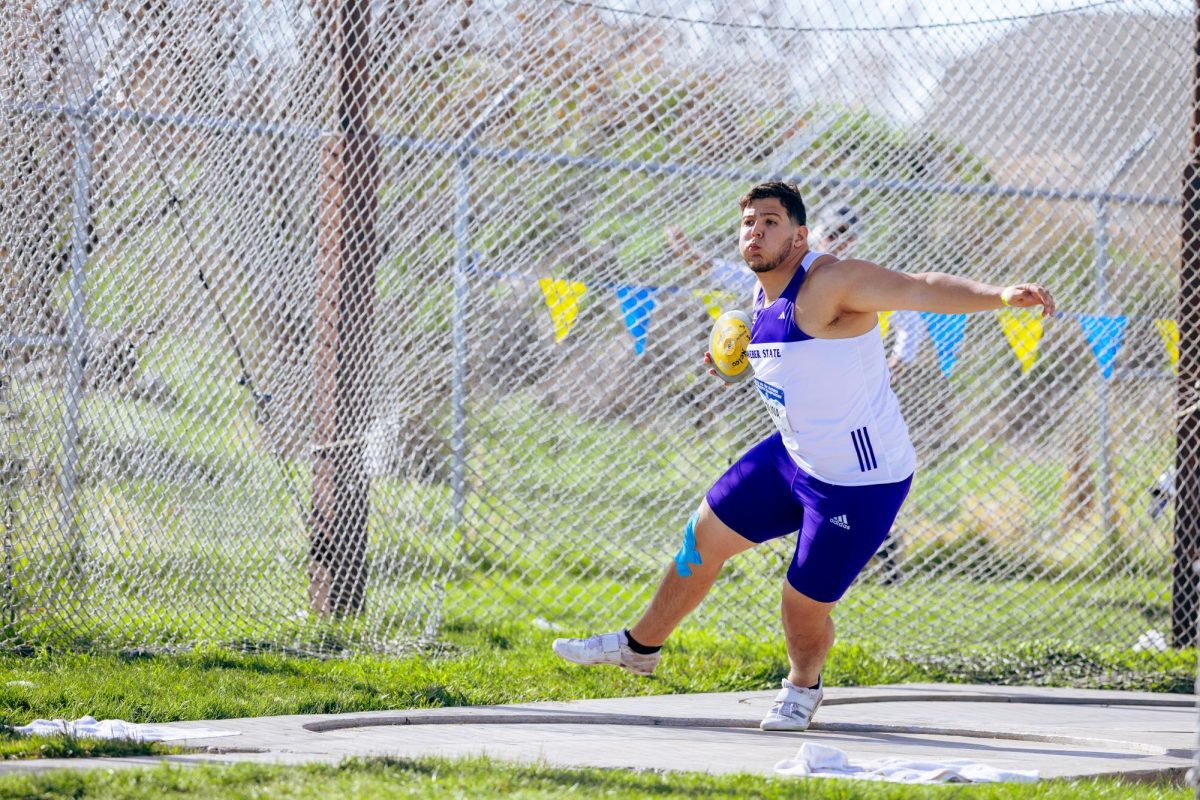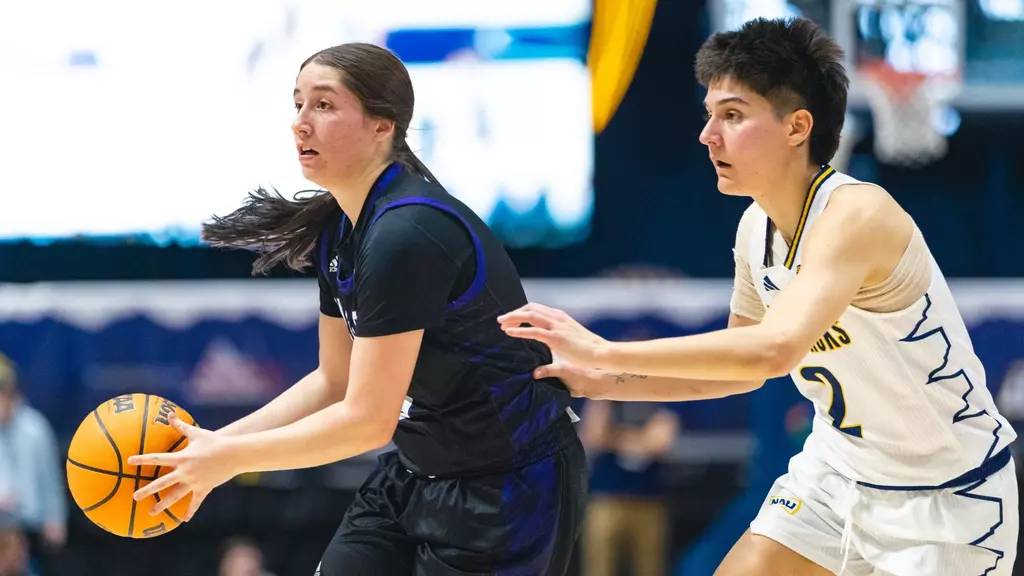Who is at bat tells Kyzer Armendariz how to chew his gum. Counting the stars and stripes on the flag before the face-off is what William Fobair does. For Emily Drake, tying her shoes a certain way wouldn’t determine her performance on the court.
Superstitions: Call them a productive routine or an unjustified ritual. Some would say they help athletes, while others would say they are mental roadblocks. Many athletes consider superstitions to be habits or traditions that help their performance.
There are 16 NCAA sport teams and 17 club sports on the Weber State campus. With so many colligate athletes in Ogden, what are their superstitions, and how do they use them, or do they use them at all?
For Armendariz, a catcher for the men’s baseball team, superstitions are more mental than anything. Because it brings results, he thinks that doing something over and over works, makes you believe in it. Even if that thing is what side of your mouth you chew your gum on.
“When I chew gum, I always have it on the left side of my mouth when the away team is batting and on the right side when the home team is batting,” Armendariz said. “I see the game flow faster when I do that and that outcome is usually in favor of us.”
His teammate, Wesley Garner, believes in his superstitions because they give him confidence. Once something works for him, he doesn’t want to change a thing. Garner thinks superstitions are things that can help them perform better.
“A specific one that I do is, before I step in the box before each pitch, I look at the top of the left field foul pole, and then I take a huge deep breath, exhale and then step in the box,” Garner said. “I do it to help myself relax, which helps me be able to focus once I’m in the box.”
Fobair, a hockey defender, has one superstition that he sticks to and two others that he does if he can. The others are what he eats for lunch on game day and the specific songs he listens to while visualizing making good plays out on the ice.
“The main one is I count all 50 stars and 13 stripes on the flag during the National Anthem,” said Fobair. “I think superstitions are definitely useful and the mental part of a game can make a huge difference. I think some people can make too big of a deal about it and it will effect their game negatively.”

On the same side of the ice, Robbie Brennan, the ‘Cats goalie, has a routine rather than a superstition. Brennan performs the routine before every game, regardless of if he is playing or not. The routine helps him get into the correct mindset.
“I think superstitions can help people. They can also destroy a person mentally,” Brennan said. “I have met people who don’t follow their routine (and) their whole mentality is messed up for the game. You can’t let your superstition determine whether or not you’ll have a good game.”
Emily Drake and Jaiamoni Welch-Colman, from the women’s basketball team, believe in good routines rather than superstitions. While here at Weber, they have recognized the importance of preparing rather than relying on superstitions.
“I don’t have any superstitions,” Drake said. “I do have routines I go through before games. I don’t believe in superstitions because it doesn’t make sense to me. My performance is not going to depend on how I tied my shoes or if I wear something in particular.”
At the beginning of her college career, Welch-Colman thought that doing the same thing before games or wearing the same thing would help her have a good game. As she got older, she realized it doesn’t matter. She was going to play well if she was smart on the court.

“I feel like superstitions are worthless because it’s something extra to worry about mentally,” Welch-Coleman said. “It is also a potential excuse for why games or performances go good or bad.”
Some athletes prefer superstitions or rituals and others want and need routines to be prepared. Jordan Preator referenced to something he did before football games as a tradition rather than a superstition or routine.
“During my junior year here at Weber, I had one where me, my brother Parker, Luke Latteier, Arnold Lopez and Jeremy Maxwell would have ice cream and play video games every Thursday night before games,” Preator said. “(It was) more of a tradition than superstition, though.”
Before Weber, Preator played high school football locally at Fremont High and then at BYU. During his time in high school and his first year in college, he stuck to a superstition until he noticed he still played well without it.
“I would play StarCraft the night before games every week. I always felt like if I didn’t, I wouldn’t play good or we wouldn’t win.” Preator continued. “That was the longest superstition I had, until I couldn’t do it on away games at BYU and still played good without it.”
Like Preator, Andrea Hale, an outside hitter for the women’s volleyball team, found out that superstitions could be proved wrong once there is a different result in the game or the athlete’s performance.
“When I first got to Weber, there was a tile outside the Swenson building that if you stepped on the top corner, it would make a sound,” Hale said. “It became something before any practice, meeting or game I had to step on. I learned quickly that it had no outcome of how anything worked out, I just enjoyed the sound it made.”
For her, Hale learned that routines are more important and more effective than rituals or superstitions. She came to this conclusion as she studied more about sports psychology.
“Rituals are like superstitions where athletes have to do things in the exact same way,” Hale said. “Routines are ways athletes can get mentally prepared for games. Rituals are hard to control. Routines can be done anywhere and help the athlete get in their groove.
Superstitions: Call them rituals, or call them routines. Athletes say they work.













